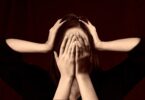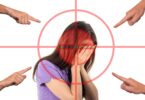Bipolar disorder is a mental illness in which a person has obvious changes in mood.
Bipolar disorder has no defined causes by specialists, but it is possible that it has to do with a combination of genetic and environmental factors and the alteration of chemicals and structures in the brain.
That is why, people with this disorder have manic episodes or unusually high moods in which they may feel very happy or irritable, and in which there is a marked increase in the level of activity.
There are three main types of bipolar disorder:
Bipolar I disorder includes manic episodes that last at least 7 days or manic symptoms so severe that they need immediate hospital care. Depressive episodes are also common. They usually last at least two weeks.
Bipolar II disorder. The person has suffered at least one major depressive episode and at least one hypomanic episode, but has never suffered a manic episode.
Cyclothymic disorder. The person has suffered for at least two years and very frequent episodes with symptoms of hypomania and periods with depressive symptoms.
Other types of disorder. These include bipolar disorder and related disorders induced by certain medications or alcoholic beverages, or as a consequence of an illness.
The FAST can be used to measure bipolarity. It is a simple, easy-to-apply and fast instrument (time of 3-6 min.). It was developed for the clinical assessment of the limitations presented by psychiatric patients, especially those with bipolar disorder.
Symptoms:
- Exaggerated self-esteem.
- Very high and/or irritable mood.
- Greater sociability.
- Greater activity and energy.
- Accelerated thinking.
- Less need for sleep.
- Greater sexual activity.
Behavior:
The bipolar person will feel very depressed. This leads to anxiety, sadness, pessimism and strong feelings of frustration. In addition, the person will have a complete loss of interest in everything, even in things that he or she frequently wanted to do during the manic phase.
He or she will also have little need for sleep, poor judgment.
He or she will also have poor temper control, lack of self-control, and reckless behaviors, such as excessive drinking or drug use, increased risky sexual relations, gambling, and spending or giving away a lot of money.
Recommendations:
Although there is no cure for this disorder, medications approved by the Food and Drug Administration can treat the symptoms and make the patient feel better.
As well as taking the person into account and spending more time with the person, speaking honestly, not taking their comments or behavior personally, and keeping the environment as quiet as possible.
Try to encourage this person to go out and do things that he or she really likes.
FONT
https://www.nimh.nih.gov/health/publications/espanol/trastorno-bipolar
https://www.mayoclinic.org/es-es/diseases-conditions/bipolar-disorder/symptoms-causes/syc-20355955








